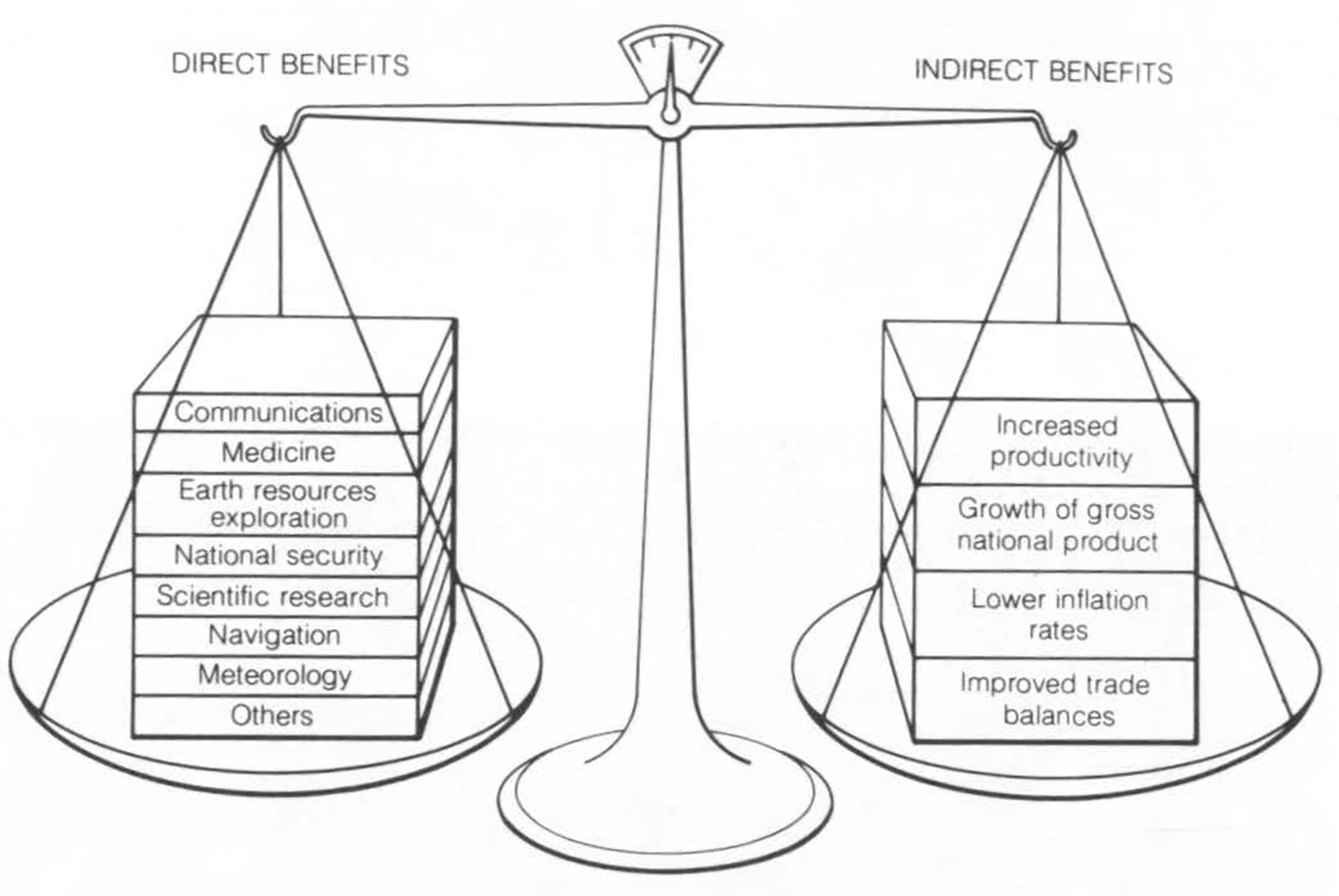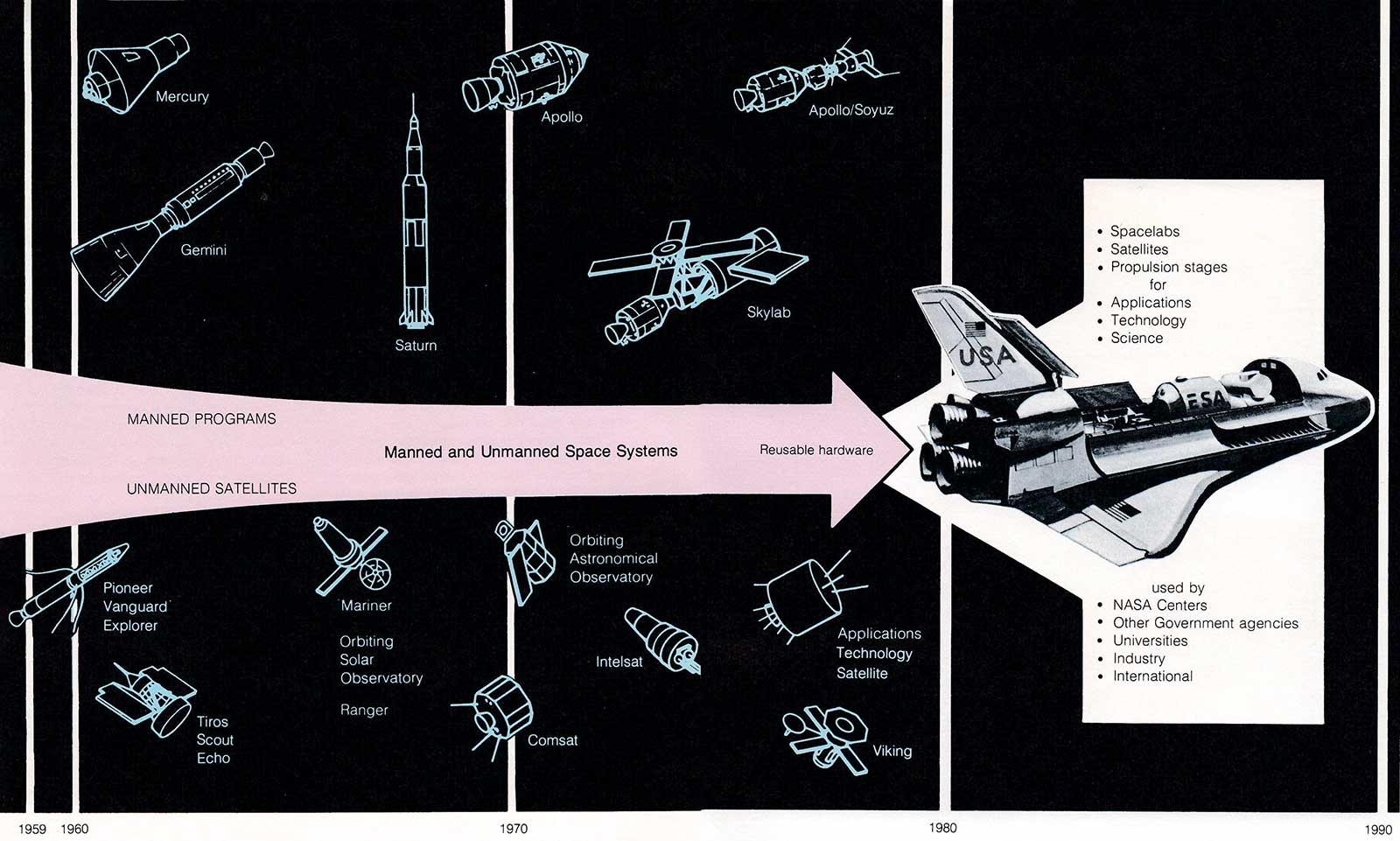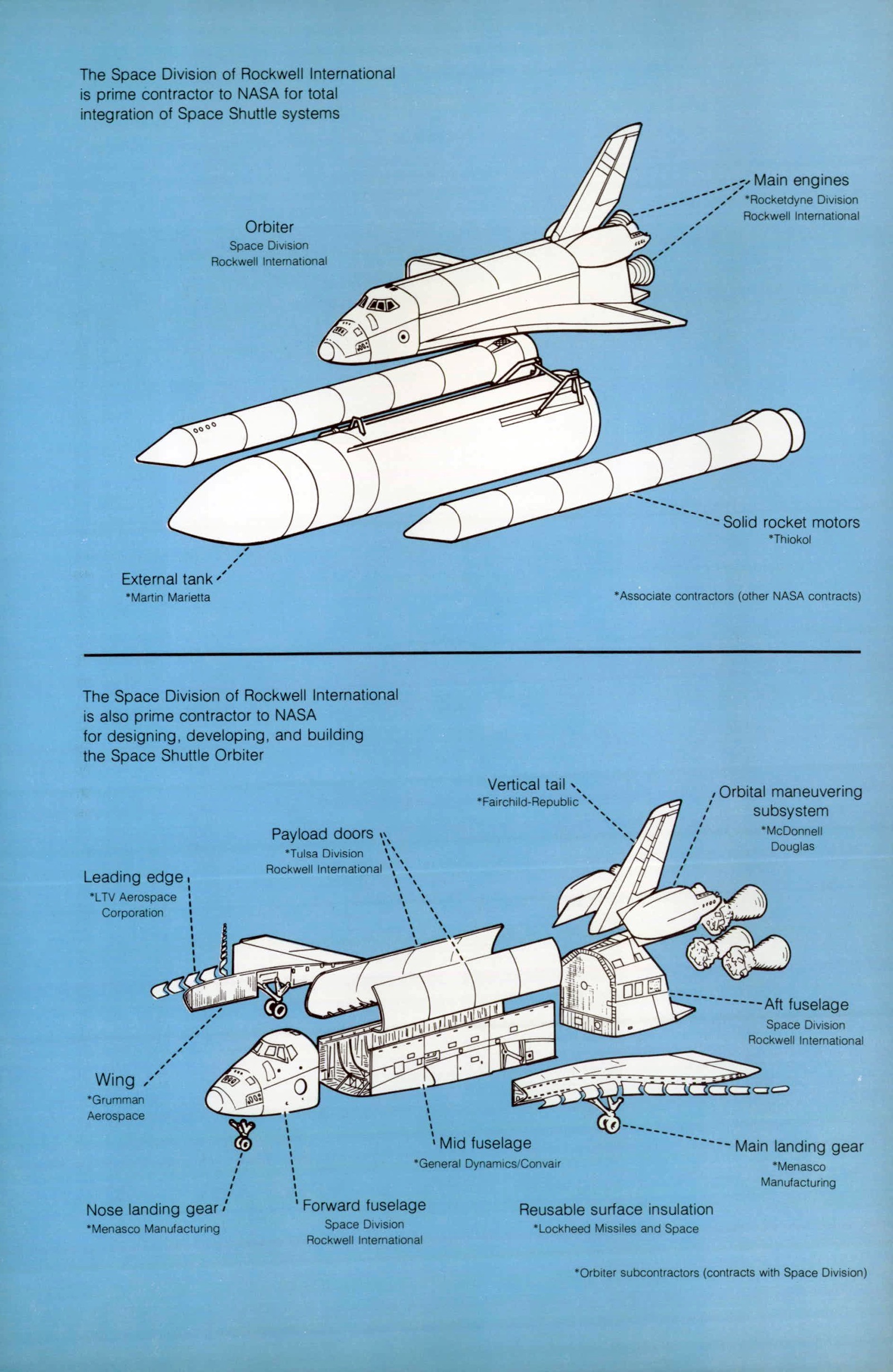Economic Impacts of Space Shuttle

There is abundant and well-documented evidence of the widespread benefits flowing from the space program to the nation and, indeed, to the world. The fields of medicine, communications, navigation, meteorology, Earth resources exploitation, and many others have been enriched. The Shuttle will increase these benefits and bring others in the future. However, the space program also spawns many less apparent economic benefits that are potentially as significant as the direct contributions. These indirect economic effects are not widely recognized, nor do they constitute the primary justification for the space program. Yet several recent studies have shown that they strengthen the nation’s economy by making important contributions in our efforts to solve our basic economic problems.
Economists have long known that technological advance is the primary source of higher productivity and economic growth, and that research and development (R&D) is the chief contributor of technology. What is new is the preponderance of recent evidence that hightechnology efforts such as the Shuffle and other space programs have a more potent effect on the economy than most other forms of R&D activity.

The reasons for the high technological leverage of the space program are straightforward. One is that the government-industry space team has consciously developed and implemented highly effective mechanisms for identifying and transferring space technology to other sectors of the economy for subsequent nonspace applications. Another reason is that industries performing space research are among the most technology-intensive and-innovative in the economy; they generate the all-important technology stimulus the U.S. economy must have for improved productivity rates and expanded output.
These same industries are the ones the United States relies on in its efforts to maintain favorable trade balances. Expanded exports of high-technology products will offset the traditional negative balances in minerals, raw materials, fuels, and low-technology manufactured goods. In this regard, the Space Shuttle Program will contribute favorably to the U.S. trade posture in two ways. It will help speed the pace of technology because of its highly stimulative effects on those technologyintensive industries that are depended on for a high dollar volume of exports. And it will contribute directly by launching and servicing the satellites of other nations. The ability of the Shuttle to provide launch services at lower costs and to offer orbital maintenance services never before available should markedly increase foreign participation in space exploration and exploitation.

The Space Division of Rockwell International is prime contractor to NASA for total integration of Space Shuttle systems
Orbiter
Space Division
Rockwell International
Main engines
* Rocketdyne Division
Rockwell International
Solid rocket motors
* Thiokol
External tank
* Martin Marietta
* Associate contractors (other NASA contracts)
The Space Division of Rockwell International is also prime contractor to NASA for designing, developing, and building the Space Shuttle Orbiter
Leading edge
* LTV Aerospace Corporation
Wing
* Grumman Aerospace
Payload doors
* Tulsa Division
Rockwell International
Vertical tail
* Fairchild-Republic
Orbital maneuvering subsystem
* McDonnell Douglas
Aft fuselage
Space Division
Rockwell International
Mid fuselage
* General Dynamics/Convair
Forward fuselage
Space Division
Rockwell International
Main landing gear
* Menasco Manufacturing
Nose landing gear
* Menasco Manufacturing
Reusable surface insulation
* Lockheed Missile and Space
* Orbiter subcontractors (contracts with Space Division)
The U.S. accomplishments in science, technology, exploration, and Earth applications attest to our success in meeting the goals of the National Aeronautics and Space Act during the past 16 years. The ancillary benefits of the space program its ability to stimulate the economy; its applications to the solutions of earthbound problems; its contributions to international cooperation; and its creation of tens of thousands of jobs for our highly skilled scientists, engineers, and technicians provide further proof of this success. These accomplishments and benefits should weigh heavily in the determination of the level of resources to be allocated to the Space Shuttle and the payloads in this and coming decades.